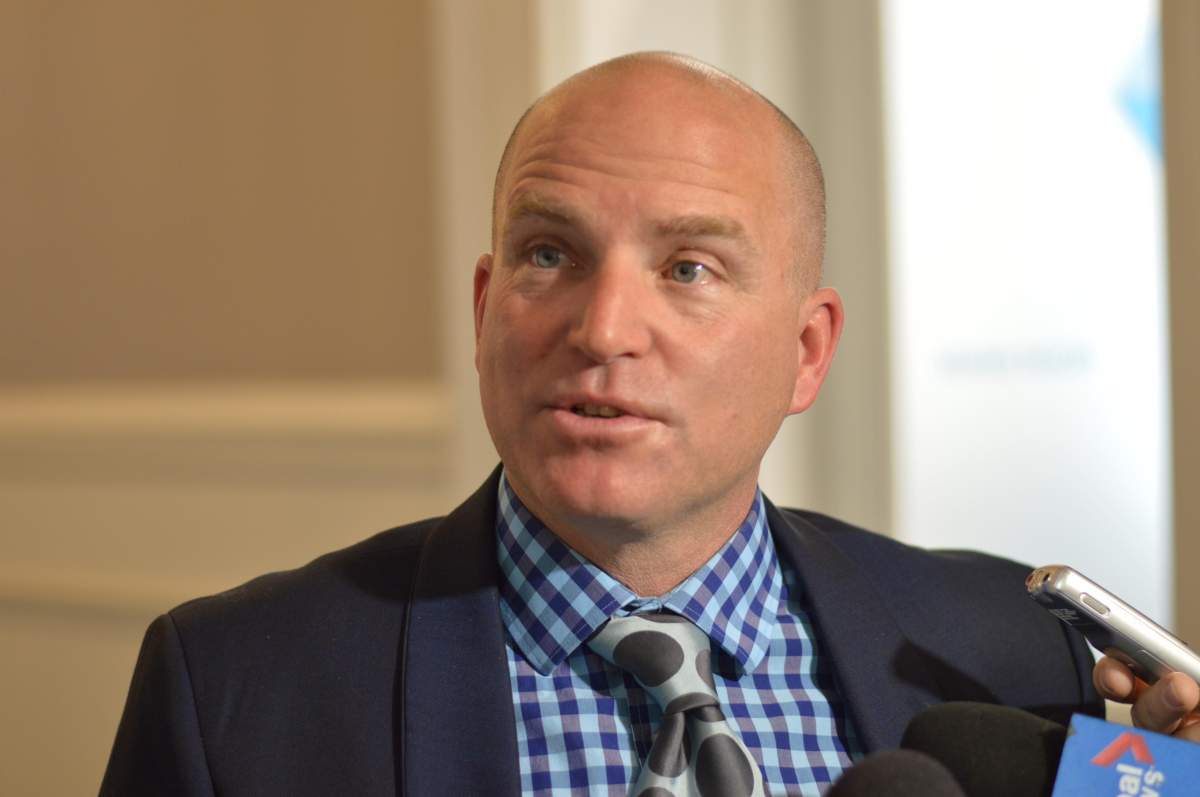More than a year after the Halifax Regional Municipality (HRM) adopted a controversial program in preparation for the legalization of cannabis, new data indicates that the bylaw is rarely being enforced.

Despite the legal smoking or vaping of cannabis or tobacco on municipal property being limited to 83 designated smoking areas (DSA) throughout the HRM, exactly zero tickets have been handed out by the municipality’s bylaw officers.
In comparison, Halifax Regional Police have handed out 11 tickets under the bylaw, an increase of nine from the two that Global News reported on in April.
The new information has prompted Matt Whitman, councillor for Hammonds Plains-St. Margarets, to call for the HRM to more aggressively enforce the bylaw or rescind it altogether.
“Council made a rush decision without considering all implications. Lumping Tobacco smokers with marijuana smokers was a mistake,” said Whitman in an email.
READ MORE: 2 tickets, 92 designated areas and the cost of Halifax’s smoking bylaw
DSAs were created when Halifax Regional Council voted to amend its existing Nuisance Bylaw to prohibit smoking of any kind on municipal property except in certain specially designated areas.
Citizens who break the rules of the renamed Nuisance and Smoking Bylaw face a fine between $25 and $2,000.
The HRM says it spent $121,800 on 600 DSA receptacles and attaching “smoking permitted” stickers that it had made in-house. A $60,000 contract was awarded earlier this year to help clean and service the smoking receptacles.

Get breaking National news
The municipality has consistently highlighted that bylaw enforcement is based on complaints but declined to answer whether they believed the bylaw to have been effective, saying that it was not their place to comment on the perceived success or failure of the program.
But three municipal councillors did respond, providing a variety of viewpoints about the program that came into effect on Oct. 15, 2018.

David Hendsbee, councillor for Preston–Chezzetcook–Eastern Shore, said he is concerned about the vandalism of the canisters, some of which he has seen dismantled as people scavenge for the remnants of joints and cigarette butts.
“I think most citizens have been very respectfully when smoking either cannabis and tobacco in public areas,” said Hendsbee. “The use of the DSAs appears to be working well but not necessarily all sites.”
“With regards to more enforcement, I would only focus on areas where constant complaints are lodged, if any have been registered.”
Whitman said he doesn’t believe that the program has been good or cost-effective for the HRM.
“Despite incredible cost, we are not seeing behaviour change.”
READ MORE: Inside Halifax’s muddled roll out of its designated smoking areas
Lisa Blackburn, councillor for Middle/Upper Sackville–Beaver Bank–Lucasville, told Global News that she thinks the bylaw has been slow to gain traction but that she does see more people using the DSAs — especially in the downtown core.
“Enforcement was always going to be the challenge with this bylaw and still is. The cost is reasonable, as we had to have something in place for when cannabis was legalized,” said Blackburn.
“It is my hope that the province will soon be fulfilling its end of the bargain and start to filter money down to the municipalities to help offset the cost of cannabis to the city.”





Comments